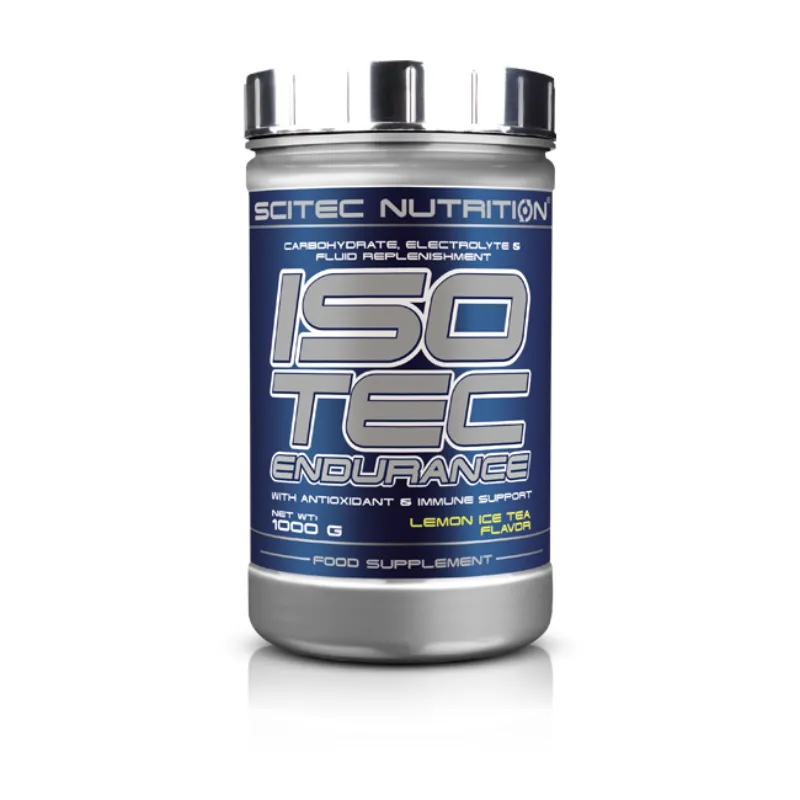Electrolytes are more than just a buzzword on sports drink bottles; they are crucial for our body’s health and function.
We start with a basic understanding of electrolytes – the minerals in our body that carry an electrical charge. These include well-known names like sodium, potassium, calcium, and magnesium. We will look at how these essential nutrients help regulate everything from our hydration levels to nerve functions and muscle contractions.
But what happens when our electrolyte balance is disturbed? From fatigue and muscle cramps to more serious health consequences, we will explore the symptoms and causes of electrolyte imbalance. This knowledge is crucial, not only for athletes but for anyone who wants to maintain a healthy body.

You can buy our electrolytes here.
Electrolytes are essential minerals in our body that have an electrical charge. They are found in our blood, urine, and body fluids and are crucial for many of the body’s basic functions. These dissolved ions play a central role in maintaining fluid balance, transmitting nerve impulses, and regulating muscle contractions.
The most well-known electrolytes include:
Electrolytes play several critical roles:
Overall, electrolytes play a crucial role in the body’s daily functions. Their balance is necessary for health and well-being. Whether you are an athlete or just looking to maintain a healthy lifestyle, it’s important to be aware of your electrolyte intake and ensure that your diet contains a good balance of these essential minerals.
Electrolytes play a crucial role in many of the body’s functions. Their influence ranges from maintaining fluid balance to ensuring proper nerve and muscle function. Let’s dive deeper into these important roles.
Our bodies consist of about 60% water, and maintaining this fluid balance is crucial for our health. Electrolytes like sodium, potassium, and chloride play a central role in regulating this balance. They ensure that there is an appropriate amount of fluid in our cells, bloodstream, and the spaces between cells. Without this careful regulation, our cells would either swell up or shrink, which could lead to serious health problems.
Nerves transmit signals to each other through electrical impulses. Electrolytes like sodium, potassium, and calcium are crucial for these nerve impulses. They help create and convey electrical signals, which cause our muscles to contract and relax. When electrolyte levels are too low or too high, it can disrupt these signals, resulting in problems like muscle cramps, weakness, or even paralysis.
The acid-base balance in the body is crucial for our cells’ normal function. Electrolytes like bicarbonate play a central role in maintaining this balance. They help neutralize acids in the blood, ensuring that the pH level in the body remains within a healthy range. Without this regulation, the body’s environment could become either too acidic or too basic, negatively affecting many biological processes.
Electrolytes like sodium, potassium, calcium, and magnesium play vital roles in our body’s functions. An imbalance in these essential minerals can have a range of consequences for our health. Let’s explore the signs of electrolyte imbalance, potential causes, and the health risks that can arise.
The symptoms of electrolyte imbalance can vary depending on which and how many electrolytes are out of balance. Common symptoms include:
In severe cases, electrolyte imbalance can lead to life-threatening conditions like seizures or coma.
Electrolyte imbalance can be caused by a variety of factors:
Untreated electrolyte imbalance can lead to a range of serious health problems:
To prevent electrolyte imbalance, it’s important to maintain a healthy diet, drink enough fluids, and be aware of any symptoms that might indicate an imbalance. If you experience severe symptoms, it’s important to seek medical help as soon as possible. By understanding the role and importance of electrolytes in the body, we can better take care of our health and well-being.

Electrolytes like sodium, potassium, calcium, and magnesium are crucial for our health. They control everything from our hydration level to nerve function and muscle strength. But how do we ensure that we get enough of these essential nutrients? Let’s explore the best sources of electrolytes.
One of the best ways to maintain a good electrolyte balance is through diet. Here are some foods that are particularly rich in electrolytes:
In certain situations, such as intense sports or specific health conditions, electrolyte supplements can be useful. These supplements often come in the form of tablets, powders, or liquids and can help restore electrolyte balance quickly. However, it’s important to use these supplements cautiously and preferably after consulting with a health professional, as overdosing can lead to imbalance and health issues.
The best strategy for maintaining a healthy electrolyte balance is to eat a varied and balanced diet. This ensures that you get a wide range of nutrients, including electrolytes. A diet rich in fruits, vegetables, whole grains, and lean protein can cover most of your electrolyte needs. Additionally, it’s important to drink sufficient water, especially if you are physically active or live in a hot climate.
By including a variety of electrolyte-rich foods in your diet and using supplements if necessary, you can ensure that your body has the necessary nutrients to function optimally. Remember, a healthy and balanced diet is key to a good electrolyte balance and thus a healthy life.
For those who are physically active, electrolytes play a crucial role in maintaining performance and health. During sports and training, understanding electrolyte needs and how to best manage them is key to optimal performance and quick recovery.
When we exercise, we lose electrolytes, primarily through sweat. These lost electrolytes need to be replaced to maintain our body functions, especially fluid balance and muscle contractions. A lack of electrolytes during exercise can lead to symptoms like cramps, fatigue, and even dehydration.
During prolonged sports activities, such as marathon running, long bike rides, or intense training, it’s important to maintain a good electrolyte balance. This can be done by regularly consuming fluids and foods that contain electrolytes. Staying hydrated and ensuring a good supply of electrolytes like sodium and potassium can help prevent fatigue and optimize performance.
Sports drinks can be a convenient way to restore electrolytes and hydration during physical activity. They typically contain a balance of electrolytes and sugars that help quickly replenish lost nutrients and energy.
Pros of sports drinks include:
However, cons can include:
Understanding the role of electrolytes in relation to physical activity is crucial for anyone looking to improve their performance and overall health. It’s important to find a balance that suits individual training needs, whether that means consuming sports drinks, electrolyte supplements, or simply focusing on an electrolyte-rich diet. Remember, each individual has unique needs, so it’s important to listen to your body and possibly seek advice from a nutritionist or a sports medicine professional.

For athletes and those engaged in physical activity, understanding the role of electrolytes is even more critical. It’s essential to find a balance that supports both health and performance. This may mean adjusting dietary habits, using sports drinks judiciously, and listening attentively to the body’s signals.
Maintaining a healthy electrolyte balance is a dynamic process that requires attention and adaptation to individual needs and lifestyle. By integrating the knowledge we have shared in this series, you can take steps towards improving your overall health and well-being. Remember, if you’re ever in doubt, or if you experience severe symptoms of electrolyte imbalance, it’s always best to consult a health professional.
Electrolytes are minerals with an electrical charge found in the body’s fluids. They include, among others, sodium, potassium, calcium, and magnesium, and they are crucial for many of the body’s functions, including fluid balance and nerve and muscle functions.
During physical activity, the body loses electrolytes through sweat. These lost electrolytes, especially sodium and potassium, need to be replenished to avoid dehydration, maintain muscle function, and prevent cramps.
Yes, an overload of electrolytes, known as hypernatremia (too much sodium) or hyperkalemia (too much potassium), can be harmful. It’s important to maintain a balance and not overconsume electrolyte supplements or foods with extremely high electrolyte content.
Signs of electrolyte imbalance can include fatigue, headaches, muscle cramps, confusion, and in severe cases, heart arrhythmias. If you experience these symptoms, it’s important to seek medical help.
A balanced diet rich in fruits, vegetables, whole grains, and lean protein can cover most of your electrolyte needs. For athletes or during intense physical activity, sports drinks or electrolyte supplements can also be useful.
Sports drinks can be an effective way to restore electrolytes and hydration during prolonged physical activity. But they are not always necessary, especially for short-term or less intense exercise, and some contain high amounts of sugar.
© 2024 Only Approved – Designed by Aveo web&marketing
Socials
Socials